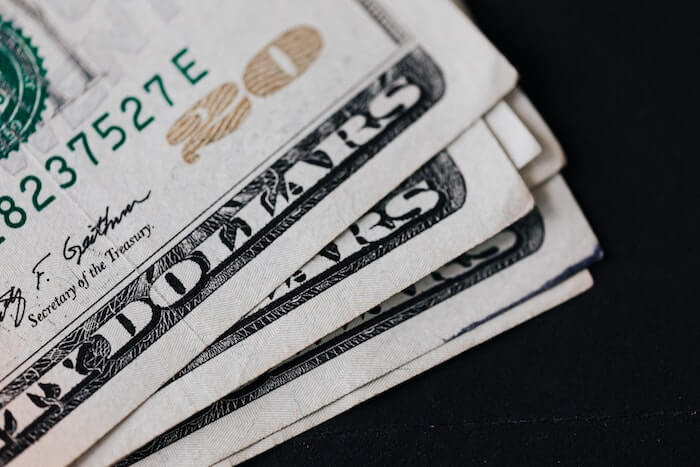What to Do When You've Had Your Airbnb Account Deactivated

Airbnb account deactivation refers to the termination of a host’s account by Airbnb due to a violation of the company’s terms and conditions or any other reasons deemed inappropriate by the platform. When your account is deactivated, you lose access to all your listings and reservation information, which can be a huge blow to your short-term rental business.
Imagine this scenario: You’ve been hosting guests on Airbnb for several months, earning a steady income, and receiving positive feedback from your guests. Suddenly, you receive an email from Airbnb stating that your account has been deactivated due to a violation of the terms and conditions. You’re left confused and frustrated, wondering what went wrong. You’re also worried about the security of your Airbnb data and waiting to access or receive assistance from Airbnb.
In this article, we’ll take a deep dive into the world of Airbnb profile deactivation, including the reasons why it happens, the consequences, and what you can do to avoid it. We’ll also provide a step-by-step guide on what to do if your account gets deactivated so that you can get back to hosting guests in no time.

Reasons for Having Your Airbnb Deactivated
All Airbnb accounts must adhere to the platform’s community standards. Other sites have similar listings and similar policies, which means they can also deactivate your account if they see fit.
By verifying this information, Airbnb aims to ensure that hosts are who they say they are, and that their listings are accurate and trustworthy for guests.
Violation of the Airbnb Terms and Conditions
If have had your Airbnb deactivated due to a violation of Airbnb’s terms and conditions, you should first review the terms and conditions to understand the reason for the deactivation. If you believe the deactivation was a mistake, you can contact Airbnb’s customer support team to appeal the decision.
If you did violate the terms and conditions, you should take steps to address the issue and prevent it from happening again. Depending on the severity of the violation, your account may be reinstated after a certain period or it may be permanently deactivated.
Fraudulent Activities
If your Airbnb account has been deactivated due to fraudulent activities, you should review Airbnb’s terms and conditions to understand the reason for the deactivation. If you believe the deactivation was a mistake, you can contact Airbnb’s customer support team to appeal the decision.
However, if you engage in fraudulent activities, it is important to take responsibility and address the issue. You should stop all fraudulent activities immediately and take steps to remedy any harm caused. Depending on the severity of the fraud, you may need to consult with a lawyer.
You should also work with Airbnb to resolve the issue and discuss the possibility of restoring your account. Keep in mind that Airbnb takes fraud very seriously and may not reinstate your account if the fraud is severe or repeated.
What would Airbnb Consider Fraudulent Activity?
Airbnb considers fraudulent activities to be any actions taken by hosts or guests that are intended to deceive, mislead, or manipulate the Airbnb platform or community. Some examples of fraudulent activities that may result in the deactivation of an Airbnb host account include:
- Providing false information: This can include providing false identification, misrepresenting the characteristics of the rental property, or providing inaccurate or misleading information about a guest.
- Payment fraud: This can include using stolen credit cards or manipulating the payment process to avoid paying fees.
- Misrepresenting a property: This can include listing a property that doesn’t exist, misrepresenting the condition or location of the property, or failing to disclose important information about the property.
- Violating Airbnb’s content policy: This can include posting inappropriate or misleading content, using fake reviews, or engaging in other activities that violate Airbnb’s community standards.
- Violating local laws: This can include renting out a property in violation of local zoning laws or failing to pay taxes on rental income.
- Misusing the platform: This can include attempting to book or cancel reservations outside of the Airbnb platform, harassing or threatening other users, or engaging in other activities that violate Airbnb’s terms of service.

Low-Quality Listings
If your Airbnb host account has been deactivated due to low-quality listings, it means that your listings did not meet Airbnb’s quality standards.
To reactivate your account, you should take steps to improve the quality of your listings. Here are some steps you can take:
- Review Airbnb’s hosting standards: Make sure you understand the quality standards that Airbnb expects of its hosts. This will help you identify areas where you need to improve.
- Revise your listings: Take a critical look at your listings and make changes to improve the quality. This can include improving the quality of your photos, adding more detailed descriptions, or making sure your property is clean and well-maintained.
- Get feedback: Ask friends or family members to review your listings and provide honest feedback. This can help you identify areas where you need to improve.
- Contact Airbnb: If you have made significant improvements to your listings, you can contact Airbnb’s customer support team to request a review of your account. Be prepared to provide evidence of the changes you have made and explain how you plan to maintain high-quality listings in the future.
- Consider attending an Airbnb workshop or training: Airbnb offers a range of workshops and training programs to help hosts improve the quality of their listings. Consider attending one of these programs to learn new skills and best practices for hosting on Airbnb.
Unresponsive Host Behavior
If your Airbnb host account has been deactivated due to unresponsive host behavior, it means that you failed to respond to guest inquiries or messages in a timely manner.
To reactivate your account, you should take steps to improve your response time and communication with guests. Here are some steps you can take:
- Review Airbnb’s hosting standards: Make sure you understand the communication standards that Airbnb expects of its hosts. This will help you identify areas where you need to improve.
- Set up notifications: Make sure you have set up notifications so that you receive alerts when you receive messages or inquiries from guests.
- Respond promptly: Make a commitment to respond to all guest inquiries and messages within 24 hours. If you are unable to respond within this time frame, let the guest know when you will be able to respond.
- Be available: Make sure you are available to answer questions and resolve issues for your guests during their stay. Provide them with a reliable contact method (such as a phone number or email address) and respond promptly to any issues that arise.
- Reach out to Airbnb: If you have improved your response time and communication with guests, you can contact Airbnb’s customer support team to request a review of your account. Be prepared to provide evidence of the changes you have made and explain how you plan to maintain good communication with guests in the future.
- Consider using Airbnb tools: Airbnb offers tools such as message templates and saved messages that can help you respond to guests more efficiently. Consider using these tools to improve your response time and communication with guests.

Consequences of Airbnb Account Deactivation
When an account is deactivated, it can have serious consequences for hosts, including a loss of income, a negative impact on their approval, and difficulty finding alternative platforms for hosting. In this section, we will explore the various consequences of Airbnb account deactivation and provide insights and tips on how to prevent account deactivation and what to do if it happens.
Loss of income
If Airbnb deactivate your account, it can result in a loss of income if you depend on Airbnb as a source of income. When your account is deactivated, your listings are no longer visible on Airbnb’s platform, and you will not be able to accept new bookings. This can be particularly devastating if you rely on Airbnb income to pay bills or support yourself financially.
Unfortunately, if your account has been deactivated due to a violation of the Airbnb terms and conditions, the loss of income is a consequence that you will have to accept. However, if you believe that the deactivation was done in error or was unjust, you can contact Airbnb’s customer support team to request a review of your account.
If you can demonstrate that your account was deactivated in error, and that you have not violated any of Airbnb’s standards or policies, Airbnb may reactivate your account and reimburse you for any lost income. However, if your account was deactivated due to fraudulent activities, you may not be able to recover your lost income.
To avoid the risk of losing income due to Airbnb account deactivation, it is important to ensure that you understand and comply with Airbnb’s policies and standards. Maintaining good communication with guests, providing high-quality listings, and responding to issues in a timely manner can help prevent account deactivation and ensure a reliable source of income from hosting on Airbnb.

Negative impact on the host’s reputation
In addition to the financial impact of Airbnb account deactivation, it can also have a negative impact on the host’s reputation. When an account is deactivated, it is usually due to a violation of Airbnb’s policies or standards. This can lead to negative reviews from guests and fellow hosts and may damage the host’s credibility and standing within the Airbnb community.
Negative reviews can be particularly damaging because they are visible to all potential guests who are considering booking with the host. If a host has a history of account deactivation or policy violations, it can deter potential guests from booking with them. In some cases, a host may even be labeled as a “problem host” by Airbnb, which can further damage their standing and make it more difficult to find alternative hosting platforms.
The negative impact on a host’s standing can also extend beyond the Airbnb platform. If a host’s account is deactivated due to serious violations, such as fraudulent activities or discrimination, it can damage their standing in their local community or even their professional network. This can have long-term consequences for the host, even beyond the financial impact of lost income from Airbnb hosting.
To minimize the negative impact of Airbnb account deactivation on their reputation, hosts should strive to comply with Airbnb’s standards, maintain good communication with guests, and provide high-quality listings. In case of an account deactivation, hosts can explain the situation to guests and other hosts and demonstrate that they have taken steps to address the issue and prevent it from happening in the future. It’s also important to remember that hosts can learn from their mistakes and take steps to improve their hosting practices for future guests.
Difficulty in Re-Activating the Account
If your Airbnb account has been deactivated, you may face difficulties in re-activating it. The process of re-activating a deactivated account can be lengthy and complex, especially if the deactivation was due to serious violations of Airbnb’s standards or policies.
The first step in the process is to contact Airbnb’s customer support team and request a review of your account. Depending on the reason for the deactivation, you may be required to provide additional documentation or information to support your case. This can include proof of identity, photos of the listing, or other evidence to demonstrate that you have not violated Airbnb’s standards and policies.
In some cases, Airbnb may require you to complete an online course or training program to demonstrate your understanding of Airbnb’s rules and commitment to providing a high-quality hosting experience for guests. This can be time-consuming and may require a significant investment of time and resources.
Even if you are able to successfully re-activate your account, there may be lingering consequences, such as negative reviews from guests or other hosts. It’s important to be transparent and communicative with guests about the reasons for the deactivation and the steps you have taken to address the issue and prevent it from happening in the future.
To avoid the difficulties of re-activating a deactivated account, it’s important to take proactive steps to comply with Airbnb’s policies and standards, communicate effectively with guests, and maintain a high-quality listing. By doing so, you can minimize the risk of having your account deactivated and ensure a smooth and successful hosting experience on Airbnb.
General Steps to Take After Airbnb Deactivates Your Account
- Contact Airbnb Support: The first step after seeing that your account has been deactivated is to contact Airbnb’s Support to find out why the account was deactivated and take appropriate action. Airbnb will generally provide an explanation for the deactivation, which can help the host understand what went wrong and what steps need to be taken to resolve the issue. Remain visible to Airbnb support and ensure that you verify everything for security purposes.
- Review the reason for deactivation: After contacting Airbnb Support, the host should review the reason for deactivation. This can help the host determine what action needs to be taken to address the issue and avoid future deactivation.
- Provide evidence to prove innocence: If the host believes that their account was wrongly deactivated, they should provide evidence to prove their innocence. You are legally required to provide evidence. This could include screenshots of messages or conversations with guests, photos of the property, or any other relevant information that can help to prove that the host did not violate the Airbnb terms and conditions.
- Appeal the deactivation decision: If the host believes that their account has been deactivated in error, they can appeal the decision. The appeal process generally involves providing additional information and evidence to support the host’s case. The appeal process can take some time, but it is worth pursuing if the host believes that their account was wrongly deactivated. When in doubt, appeal to Airbnb community support. The likelihood of other users who have gone through the same trouble is high, so there will be another person to either offer a solution or help advocate for reinstatement. Creating a new account will mean the loss of your ratings, reviews, and history of hosting. This is not an ideal situation.

Tips to Avoid Airbnb Deactivation
To ensure a successful hosting experience on Airbnb and avoid deactivation, hosts should follow these tips:
Firstly, hosts should read and understand Airbnb’s policies and standards and comply with them. This includes being aware of any local laws and regulations that may apply to their listing. Hosts should also handle personal information in accordance with Airbnb’s policies, and ensure that guest privacy is respected.
Secondly, hosts should provide accurate information about their listing. This includes using detailed descriptions and high-quality photos to represent the property and amenities as accurately as possible. Hosts should also be transparent about any limitations or restrictions on the property, such as noise levels, pet policies, or smoking policies.
Thirdly, hosts should respond to guest inquiries promptly and professionally, providing clear and concise answers to any questions or concerns. This includes responding to booking requests and messages in a timely manner, as well as being available to address any issues that may arise during the guest’s stay.
Lastly, hosts should maintain a high-quality listing that meets Airbnb’s standards for cleanliness, safety, and overall quality. This includes regularly cleaning and maintaining the property, providing basic amenities such as clean linens and toiletries, and addressing any maintenance or repair issues promptly.
By following these tips, hosts can provide a high-quality hosting experience for their guests and minimize the risk of account deactivation due to policy violations or low-quality listings. It’s also important to stay up-to-date with any changes or updates to Airbnb’s policies and standards, as these may evolve over time in response to changing market conditions or guest needs.

Conclusion
In conclusion, if a host’s Airbnb account is deactivated, it is important to understand the reasons for the deactivation and take appropriate steps to address any issues. Reasons for deactivation may include fraudulent activities, low-quality listings, unresponsive host behavior, or violation of Airbnb’s terms and conditions, which can result in the loss of income and a negative impact on a host’s reputation.
General steps to take after deactivation include contacting Airbnb to understand the reason for deactivation and working to resolve any issues. Hosts may also explore other options for short-term rentals.
To avoid the risk of having your account deactivated, hosts should follow Airbnb’s terms and conditions, provide accurate information about the listing, respond promptly to guest inquiries, and maintain a high-quality listing. It is also important to stay up-to-date with any changes or updates to Airbnb’s policies and standards. By following these tips, hosts can provide a high-quality hosting experience for their guests and minimize the risk of deactivation.
Of course, staying on top of all the updates and worrying about whether or not you are complying with the rules can be stressful. Property management software like iGMS can help take the load off. Our service can help:
- Manage multiple accounts and listings on the top OTAs from a single interface.
- Synchronize reservations across multiple platforms to eliminate double bookings.
- Unify your inbox to organize your messages into a single feed to ensure prompt replies.
- Automate the process of guest review send-outs.
- Create and coordinate cleaning tasks with live tracking to completion.
- Managing direct bookings using a direct booking management toolkit.
- Adjust pricing by means of Pricelabs and DPGO integrations






